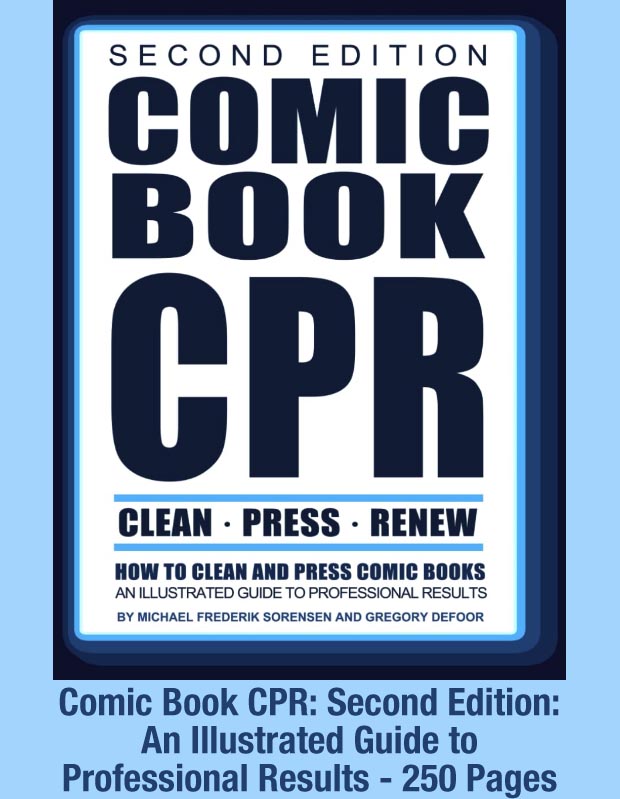The Ancient Ways, hybridized
Review: Thor Love and Thunder
If you like humor in your Marvel movies, then may I tell you about the latest Thor movie from Disney/Marvel?
Despite an intro prologue with a quite serious Christian Bale solo-performance, this film is jammed with wise-cracks and sight gags immediately thereafter, and at least for awhile the film maker (director Taika Waititi) appears to just not want you to take anything seriously and to just relax and laugh a little/a lot and enjoy your popcorn. (The feigned informality of the film is not unlike that which is in the movie Everything Everywhere All at Once.)
Whether this is a style of telling a story, avoiding a story, trying to loosen up the Marvel formula a bit (like a Sony Venom movie) or just a psychological and emotional set-up to make a better impact for the drama to follow later on, I don't know.
Not all of the funny in Thor Love and Thunder is good, and, boy, for the first half of the film they play it pretty broadly, but the story finally tightens up and tries to balance the tale of Jane Foster (The Mighty Thor) and Thor (the more familiar Mighty Thor) with melodrama and pathos, and despite a boatload of negative movie critical reviews floating around the internet, this movie gets it together as well, if not somewhat better than, say, Disney's Star Wars the Rise of Skywalker, which started off in a much bigger shambles (but without the funny) before finally stretching into a legitimately effective sci-fi tale in the last half (it, too, was excoriated by critics). This doesn't mean either film is a good movie, but there is entertainment to be had, and despite the structural problems and some storytelling issues, if you've seen a lot of past Marvel cinema then this is a snack table of inside jokes that should delight the Marvel fan.
So what's the problem in Thor Love and Slumber?
Speaking of problems, the big one with Thor Love and Thunder is the same thing that effects quite a few other Marvel films, which is a plus for the fanbase, but negative for everyone else: unless you've seen the previous films in the series, including non-Thor films, a lot of what is going on could makes sense but have no real dramatic weight to it (in particular this problem makes Doctor Strange and the Multiverse of Madness likely indecipherable without having seen a lot of other Marvel product, first). As such, the Marvel films are turning into what the Indiana Jones films pretended to be: movie serial episodes.
The strange 21st century crutch of the modern superheroes
Be that as it may, another important effect that goes beyond rubbing the shoulders of the fanbase and rewarding them with inside jokes is that in Thor Love and Thunder, while scoring yucks, shows a deep investment in resurrecting the "elder gods" of mythology. This isn't much out of place in a Thor movie, but overall it is a strange crutch for comic book-based stories and for decades it has been showing up more and more often throughout comicdom.
The basis of superhero "mythology" as originally presented in the origin years of both DC Comics and Timely (aka Marvel) was the "American-sized" version of such stories, understood in terms that fit in with what was believed to be "the century of the common man" such that the antics of a Flash, Namor, Batman and Superman, etc., was scaled and understood differently. In that era the characters were part of a society depicted as facing primarily criminals, corruption, and mysteries, and all was conquerable by seeking the good and relying on an ethical base that was attached to American Judeo-Christianity and was so generic it was probably compatible with just about any other major religious structure from any where in the world. The particular binding agent was the nature and belief in civil authority as being a limit to any force or power, including both the monsters and crooks but also the imaginary superhero beings, both heroes and villains.
But in the 1960s Marvel took the formula and expanded it by pushing out the boundaries of both psychological and mythological concerns, and this has metastasized until the spirituality of superhero comics have transitioned toward pop-art caricatures of the ancient world's willy-nilly force-and-power theology. As this avenue of storytelling is pursued, the gods become more inscrutable ethically (this is particularly focused on in Thor Love and Thunder) and the mysterious dynamics of "fate" and "destiny" become more imprisoning, all of which is a far cry from the free will dynamics of the 20th century superhero stories, with its pseudo-science providing rational explanations for the power, coupled with the general early American officially declared rejection of class strictures (which was hardly purely done, of course).
Inserting these superheroes into 21st century heroic tales fashioned from re-imagining the ancient world's gods is a reversal of all that, with humanity sinking lower and smaller, sheltered beneath the hordes of god particles making up the "real" power of the universe. Thinking about how that is possible isn't even approached with any explanation in the current bumper-crop of superhero films, something that was common enough in spook-scare stories but was not standard in the "old" superhero comics, where explanations, right down to Spider-Man sewing his own costume (DC's the Spectre did it too, a character given a nearly God-sized power to battle evil) was part of the story.
With the current creative trajectory of both Marvel and DC, the obvious end point of the story cycle is to make some superheroe figures like the ancient character Prometheus, and others with chaotic (and self-serving) ethics like Zeus. Whatever the case, the old "faith" in civil authority as appearing in modern superhero storytelling becomes more and more precarious, if not extinct, the meaning being only raw-power matters.
Gods, anger and bitterness
Director and writer Taika Waititi gives us a scenario of why doesn't a prayer to a god not get answered? Well, in this telling, not only is the answer from a god "no," but it is accompanied with derision and mockery for the weakness of non-god flesh to endure.
This turns out to be a bad idea when one non-god suddenly has the power of a god-killing sword and has revenge on his mind (with a dramatization on the screen that reminded me a lot of Elric and his sword Stormbringer. On the other hand Thor, played by Chris Hemsworth again on the screen in this film, has an axe named Stormbreaker. The personality attributes of weapons in this movie gets ribbed a bit, with jealousy breaking out between weapons, something that certainly doesn't happen in the Elric tales. How do inert objects like swords and axes have personalities? This isn't explained or asked about.)
The bitterness and anger in the opening sequence of Thor Love and Thunder is an eye-opener about how much pent-up rage can reside at the heart of a superhero movie, and it probably corresponds directly to the inner story of Jane Foster's dilemma with cancer. That the solution to the bitterness and anger is self-sacrifice appears to be how writer/director Taika Waititi balances the books, with the "gods" in this story in general being far more crude, stupid and self-serving than human beings, and, as ever in a Disney film, a family, whether by blood or a surrogacy, is the only salvation.
Stunt work and CGI graphics for the $250 million dollar production of Thor Love and Thunder is of course first class, and depending upon your patience level with the comedy that is the first half of the movie, may partially determine your enjoyment of the movie. Hemsworth and Natalie Portman (as the other The Mighty Thor) perform well together and considering how hemmed in they are by the phantasmagoria of the visual tale and special effects, not to mention the humor, are fine, as is Christian Bale.
A chubby Russell Crowe is on hand as Zeus, with a pantheon of other various gods on display using CGI that makes the magical city of the gods look like a De MIlle circus, but Disney, as ever in the 21st century, wants us to think about this in, shall we say, more rounded terms. A questioning Thor is warned by Zeus that if he continues on this path "he won't be invited to the orgy," and so, like the goofy anal-penetration jokes in Everything Everywhere All at Once, phantasy films move deeper into a cinematic world frame-by-frame that is more compatible with the ancient gods, their morals and the politics of purely personal power, with group-belonging the only chance for a human-sized being.
Related: More Reviews!
Review: Harley Quinn vs Zatanna #1 – Fighting in a void
Review: Conan the Barbarian #186 – Conan and a water nymph cooperate on a jailbreak
Batman Family #1, Sept-October 1975 – Batgirl and Robin battle a resurrected Benedict Arnold out to spoil the Bicentennial
Detective Comics #831 - Reforming Harley Quinn June 2007
Brave and the Bold #131, DC Comics December 1976 by Bob Haney with art by Jim Aparo
Review Adventure Comics #423, featuring Supergirl DC Comics Sept 1972
Review: Knight Terrors First Blood #1 DC Comics July 2023
Hell is a Squared Circle by Chris Condon and Francesco Biagini September 2022 AfterShock Comics
Review: Weird Mystery #4, Jan-Feb 1973
The Secret Life of Catwoman, Batman #62, Dec 1950–Jan 1951
The Origin of the Superman-Batman Team - review of World's Finest #94, May-June 1958, art by Dick Sprang
The Spirit Reborn - Review of The Spirit #1, Feb 2007 By Darwyn Cooke
Superman Confidential #1, January 2007 By Darwyn Cooke and Tim Sale
Richard Corben's Edgar Allan Poe – Poe's Haunt of Horror #1, 2006
Bloodstar - 1975 - Richard Corben
House on the Borderland 2000 - by Richard Corben
Review of the Joker Graphic Novel - Brian Azzarello and Lee Bermejo 2003
Review Harley Quinn #55, Feb 2019 - "We'll All Be Home for Christmas"
Edgar Allen Poe Haunt of Horror #1 2006 - by Richard Corben
Original Page July 2022

